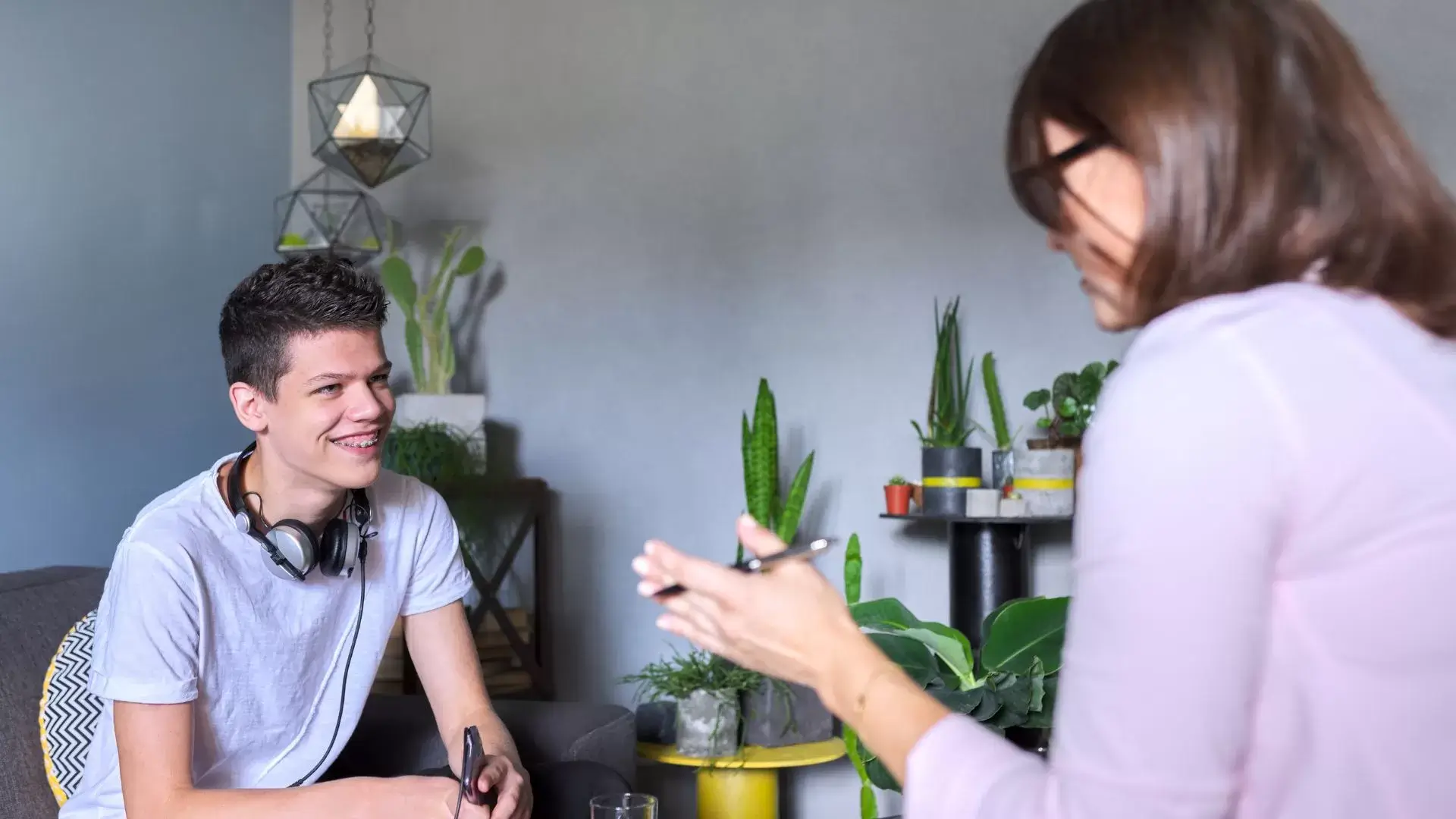Dialectical Behavior Therapy
We’re here to support you in understanding the Dialectical Behavior Therapy (DBT) approach. DBT skillfully blends acceptance and change, helping individuals manage intense emotions and enhance relationships. This therapy prioritizes emotional regulation, mindfulness, and distress tolerance, giving us tools to navigate crises.
We focus on creating a trusting therapeutic alliance, where you’ll feel safe to explore your feelings. Through exercises like the DBT diary card, we can track emotions, fostering greater self-awareness. It’s an empowering journey toward emotional stability, and as we explore its core principles, you might uncover valuable insights that resonate with your experience.

About Psychotherapy Counsellors Center
At the Psychotherapy Counsellors Center, we’re dedicated to providing compassionate support that empowers individuals on their journey toward emotional well-being and resilience. Our approach emphasizes the development of coping skills that enhance emotional regulation and distress tolerance, vital for those facing challenges in their daily lives. Through our evidence-based therapy, we utilize dialectical behavior therapy (DBT) as a foundation for our practice.
In our DBT skills training, we focus on mindfulness practices that help clients become more aware of their thoughts and feelings, fostering a deeper understanding of their emotional experiences. We believe that a strong therapeutic alliance is essential, as it allows us to tailor our interventions to meet each individual’s unique needs. This personalized approach guarantees that our clients feel supported and understood throughout their therapy journey.
What Is Dialectical Behavior Therapy (DBT)?
Dialectical Behavior Therapy (DBT) is a structured therapeutic approach that combines cognitive-behavioral techniques with mindfulness practices, aiming to help individuals develop essential skills for managing intense emotions and improving interpersonal relationships. We recognize that emotional dysregulation can be overwhelming, and that’s where DBT shines. Rooted in dialectical philosophy, it encourages us to find balance between acceptance and change.
Through emotion regulation therapy, we learn to identify and manage our emotions effectively. We practice distress tolerance strategies that equip us to handle crises without resorting to harmful behaviors. Mindfulness skills are also a core component, helping us stay present and aware of our feelings and thoughts.
In DBT, we focus on interpersonal effectiveness, allowing us to communicate our needs and boundaries assertively. The concept of radical acceptance teaches us to embrace reality, even when it’s challenging. Additionally, skills groups provide a supportive environment where we can learn and practice these techniques together.
This therapy is particularly beneficial for those struggling with borderline personality disorder, but its principles can be applied to anyone facing emotional challenges. Through DBT, we’re given the tools to foster healthier relationships and navigate life’s complexities with greater resilience.
Core Principles of DBT: Acceptance and Change
Finding balance between acceptance and change is fundamental to the effectiveness of DBT, guiding us through the complexities of our emotions and behaviors. In our journey, we’ll learn that acceptance and change are not opposing forces but dialectical strategies that work together. Through emotion-focused therapy, we can validate our feelings while simultaneously pursuing behavior change.
Mindfulness-based interventions play a key role here, helping us cultivate core mindfulness skills. These skills enable us to observe our emotions without judgment, fostering an environment where we can practice emotion management. By embracing validation strategies, we acknowledge our experiences, which is essential for effective stress management.
This therapeutic balance allows us to recognize where we are while envisioning where we want to be. By integrating acceptance and change, we can navigate our emotional landscapes more effectively, making informed choices about our behaviors. As we engage in this process, we’ll find that both acceptance and change empower us to create a healthier, more fulfilling life. Together, we can harness these principles to foster resilience and growth, ultimately leading to a more balanced and meaningful existence.

Understanding Mindfulness Skills in DBT
Mindfulness skills in DBT can help us stay present and grounded, allowing us to better understand our thoughts and feelings without judgment. Through mindfulness meditation, we learn to observe our experiences, fostering emotional mindfulness. This practice is essential as it equips us with tools to enhance our emotional stability and manage anxiety.
In our DBT modules, we focus on various mindfulness practices, such as mindful breathing and distress tolerance exercises. These techniques not only reinforce our skills but also provide a solid foundation for steering through difficult emotions. By incorporating therapeutic mindfulness into our daily lives, we cultivate a more profound awareness of our thoughts and feelings.
Mindfulness for anxiety is particularly effective, as it helps us recognize and accept our emotions rather than avoid them. As we engage in these practices, we become better equipped to face challenges and build resilience. Together, we can support each other in enhancing our mindfulness skills, promoting growth, and ultimately foster a deeper understanding of ourselves. Embracing this journey allows us to create a safe space for healing and transformation, reinforcing our commitment to mental wellness.
Building Emotional Regulation and Stability
How can we cultivate emotional regulation to navigate life’s challenges more effectively and maintain stability in our daily experiences? By incorporating Dialectical Behavior Therapy (DBT) techniques, we can enhance our emotional resilience and mood stabilization. One effective approach is practicing mindfulness training, which helps us stay present and aware of our feelings without judgment.
We can also develop emotion modulation skills, allowing us to respond to our emotions in healthier ways. This includes employing self-soothing techniques—like deep breathing or engaging in enjoyable activities—to calm ourselves during emotional upheavals. By using adaptive coping strategies, we can better manage stress and prevent overwhelming feelings from dictating our actions.
Furthermore, we can improve our problem-solving skills, enabling us to tackle life’s challenges with confidence. The DBT workbook offers practical exercises that guide us through these processes, ensuring we’re equipped with the tools necessary for crisis survival. As we practice these strategies collectively, we foster a supportive environment that encourages psychological resilience, helping us build a more stable emotional foundation for ourselves and each other.
Distress Tolerance Strategies for Crisis Survival
As we build our emotional regulation skills, it’s important to also explore effective distress tolerance strategies that can help us navigate crises with greater ease and resilience. In DBT treatment, these strategies equip us for crisis survival by encouraging a mindful approach to our emotions. Mindfulness coaching teaches us to observe our feelings without judgment, allowing us to accept our experiences rather than react impulsively.
Utilizing self-help strategies, we can implement behavioral interventions like the “TIPP” skills—Temperature, Intense exercise, Paced breathing, and Paired muscle relaxation—to manage overwhelming emotions. Acceptance-based therapy fosters a mindset where we acknowledge our distress without trying to change it immediately. This acceptance sets the stage for effective problem-solving therapy, enabling us to tackle challenges with clarity.
In moments of crisis, practicing radical candor with ourselves can be transformative, as we communicate our needs and emotions honestly. By integrating these distress tolerance strategies into our daily lives, we not only enhance our emotional regulation but also empower ourselves to face difficulties with confidence and compassion. Together, we can cultivate resilience and navigate life’s challenges more effectively.
Interpersonal Effectiveness for Healthy Relationships
Building healthy relationships requires us to develop interpersonal effectiveness skills that empower us to communicate our needs and set boundaries with confidence. In our journey through DBT sessions, we learn effective relationship skills that enhance our interpersonal communication. By practicing these skills in group therapy, we gain valuable insights into relationship effectiveness, which fosters deeper connections.
Self-acceptance plays an essential role in this process. When we appreciate our worth, we’re more likely to advocate for our needs and engage in healthy relationships. Validation techniques become critical tools, helping us acknowledge our feelings and those of others, paving the way for open dialogue.
Skills coaching provides us with practical strategies that we can implement in our daily interactions. We learn to express our thoughts clearly, negotiate effectively, and maintain our boundaries, all while respecting others. This balanced approach is fundamental for trauma recovery, as it allows us to rebuild trust and intimacy in relationships.
Ultimately, by enhancing our interpersonal effectiveness, we cultivate connections that are nurturing and supportive, leading us toward a more fulfilling relational life. Together, we can create and sustain healthy relationships that honor both our needs and those of others.
Radical Acceptance and Validation Strategies
Radical acceptance allows us to embrace reality as it is, fostering a sense of peace that can transform our emotional responses and enhance our relationships. By integrating this concept into our individual therapy sessions, we engage in dialectics, recognizing both the pain of our experiences and the possibility of change. This approach is deeply rooted in mindfulness for depression, helping us observe our thoughts and feelings without judgment.
Validation strategies play a vital role in this process. When we validate our emotions, we acknowledge their existence and importance, which can greatly improve our mental health support. Utilizing tools like the DBT diary card, we can track our emotions and practice skill-building exercises that reinforce our therapy goals.
Through these strategies, we learn to accept ourselves and our circumstances, fostering resilience. Cognitive behavioral therapy complements radical acceptance by encouraging us to reframe negative thinking patterns while grounding us in reality. This balance allows us to move forward, cultivating healthier relationships and a more compassionate self-view. Together, we can navigate the challenges of life, enhancing our emotional well-being and creating a supportive environment for growth.
How DBT Supports Trauma Recovery
Dialectical Behavior Therapy (DBT) offers a compassionate framework that helps us navigate the complexities of trauma recovery by teaching us skills to manage our emotions and develop healthier coping strategies. One of the key components of DBT is chain analysis, which allows us to identify the triggers that lead to emotional dysregulation. By dissecting these chains, we can understand the patterns that contribute to our trauma responses.
Incorporating opposite action into our practice encourages us to confront our fears by acting in ways that counter our instincts, fostering resilience. This approach is particularly beneficial in borderline personality treatment, where emotional intensity can often feel overwhelming. Through various therapeutic exercises, we learn to replace harmful behaviors with constructive ones, promoting healing and growth.
We are here to facilitate your journey toward recovery. We’re not alone in this process; DBT provides us with the tools to reclaim our lives, transforming trauma into a foundation for personal empowerment and emotional stability. Together, we can work towards lasting recovery and a brighter future.

Individual Therapy and Skills Training Groups
In individual therapy and skills training groups, we learn to harness our strengths while developing practical tools that enhance our emotional regulation and interpersonal effectiveness. These sessions provide us with a safe space to explore our thoughts, feelings, and behaviors, allowing us to gain deeper insights into our patterns.
During individual therapy, our therapist guides us through personalized strategies tailored to our unique experiences. We’re encouraged to identify triggers and practice mindfulness, helping us to stay grounded in moments of distress. This personalized attention fosters a strong therapeutic relationship, which is crucial for our growth.
In skills training groups, we collectively engage in learning and practicing DBT skills such as distress tolerance and interpersonal effectiveness. Here, we can share our experiences and support one another, which helps to normalize our struggles. This group dynamic reinforces our learning and builds a sense of community.
Together, we’re not just acquiring skills; we’re building resilience and nurturing connections. By integrating these approaches, we’re better equipped to navigate life’s challenges, enhancing our overall well-being and relationships. In this journey, we realize we’re not alone, and that’s incredibly empowering.
Emotion Management and Behavior Change in DBT
Building on our skills from individual therapy and group sessions, we focus on emotion management and behavior change in DBT to help us respond more effectively to our feelings and situations. We learn to identify our emotions without judgment, recognizing that they’re valid and can provide important information about our experiences. This awareness helps us differentiate between emotions that require immediate attention and those that may not need a reaction.
Through the use of skills like distress tolerance and emotional regulation, we practice techniques that allow us to cope with intense feelings. For instance, we might use mindfulness to stay grounded in the present moment, reducing the likelihood of impulsive reactions. We also explore how our behaviors impact our emotions and relationships, fostering a deeper understanding of the connection between the two.
Using the DBT Diary Card for Self-Monitoring
Using the DBT diary card for self-monitoring can empower us to track our emotions and behaviors, fostering greater awareness and insight into our daily experiences. By consistently filling out this card, we can identify patterns in our emotional responses and behaviors, which is essential for effective treatment. It’s a practical tool that helps us reflect on what triggers our feelings and how we react, allowing us to learn from our experiences.
We can note the skills we’ve used, which not only reinforces positive behavior but also highlights areas where we might need more practice. This self-monitoring isn’t about self-judgment; instead, it’s a compassionate way to understand ourselves better. Each entry serves as a stepping stone towards personal growth and emotional regulation.
Additionally, sharing our diary card with our therapist can enhance our sessions, providing concrete examples to discuss. It’s all about collaboration, ensuring we feel supported in our journey. By utilizing the diary card, we’re taking an active role in our healing process, making it easier to navigate challenges and celebrate our progress along the way.
Therapeutic Alliance in DBT: Building Trust
Establishing a strong therapeutic alliance is crucial for us to feel safe and understood in our journey through Dialectical Behavior Therapy (DBT). Trust forms the foundation of our relationship with our therapist, enabling us to explore our emotions and experiences without fear of judgment. When we feel connected and accepted, we’re more likely to engage fully in the therapeutic process.
In DBT, this alliance is nurtured through consistent communication and validation. Our therapists actively listen to our concerns, reflecting our feelings back to us and acknowledging our struggles. This validation not only fosters trust but also encourages us to be open about our thoughts and behaviors. We all need to feel seen and understood, and that’s essential for our growth.
Moreover, our therapists work collaboratively with us, setting shared goals that cater to our unique needs. This partnership empowers us, making it clear that we’re in this together. Research shows that a strong therapeutic alliance correlates with better treatment outcomes, reaffirming the importance of trust in DBT. Together, we can navigate the complexities of our emotions and develop healthier coping strategies, building a brighter future.
Mindfulness-Based Interventions in DBT
Mindfulness-based interventions in DBT help us cultivate awareness and presence, allowing us to navigate our thoughts and emotions with greater clarity and acceptance. These practices encourage us to focus on the present moment, fostering a non-judgmental attitude toward our experiences. By engaging in mindfulness, we can observe our feelings without feeling overwhelmed or reactive.
Research has shown that mindfulness can greatly reduce symptoms of anxiety and depression, enhancing emotional regulation and interpersonal effectiveness. Through techniques like mindfulness meditation and breathing exercises, we learn to pause and observe, rather than react impulsively. This can be especially beneficial when we face intense emotions or difficult situations.
Moreover, mindfulness teaches us to acknowledge our thoughts as temporary and separate from our identities. This realization empowers us to create space between our experiences and our reactions. As we become more skilled in mindfulness, we find ourselves responding to challenges with greater resilience and compassion—not just for ourselves, but for those around us as well.
In integrating mindfulness into our daily lives, we build a foundation for healthier coping strategies, ultimately enhancing our overall well-being and emotional stability.
Get in Touch with Our Psychotherapy Counseling Center
If you’re seeking support on your journey toward emotional well-being, we invite you to reach out to our psychotherapy counseling center where compassionate professionals are ready to help. We recognize that taking this step can feel intimidating, but we’re here to walk alongside you, offering a safe space to explore your thoughts and feelings.
At our center, we believe in a client-centered approach, tailoring our services to meet your unique needs. Our trained therapists specialize in Dialectical Behavior Therapy (DBT), which has been shown to effectively address emotional dysregulation, anxiety, and interpersonal challenges. Through evidence-based techniques, we aim to empower you with skills that foster resilience and enhance your quality of life.
We’re committed to creating a warm and supportive environment where you can feel heard and understood. Whether you’re struggling with overwhelming emotions or seeking to improve your relationships, we’re ready to partner with you on this transformative journey. Don’t hesitate to reach out; together, let’s begin a path toward healing and growth. Your well-being is our priority, and we’re here to help you every step of the way.

Frequently Asked Questions
How Long Does a Typical DBT Program Last?
When we think about the duration of a typical program, we find that it often lasts around six months to a year. This timeframe allows us to engage deeply with the material and develop meaningful skills. It’s crucial to remember that everyone’s journey is unique, so some of us may need more or less time depending on our individual needs and progress. Ultimately, we’re all aiming for growth and positive change.
Is DBT Suitable for All Mental Health Conditions?
When considering if a treatment’s suitable for all mental health conditions, we need to remember that every individual’s experience is unique. While some approaches can be beneficial for a range of issues, they may not fit everyone’s needs. It’s vital for us to assess personal circumstances, preferences, and specific challenges. Consulting with a knowledgeable professional can help us find the most effective path tailored to our unique mental health journey.
Can I Practice DBT Skills on My Own?
We can absolutely practice skills on our own! Many of us find that incorporating techniques into our daily lives helps reinforce what we’ve learned. It’s important, though, to approach this with patience and self-compassion. While self-practice can be beneficial, some of us might also benefit from guidance or support. We can explore resources, like books or online materials, to enhance our understanding and application of these skills effectively.
What Should I Expect in a DBT Session?
In a session, we can expect a warm, supportive environment where we’ll explore our thoughts and feelings together. We’ll likely discuss our experiences, learn new coping strategies, and practice skills that help us manage emotions. It’s a safe space for sharing challenges and celebrating progress. We’ll also work collaboratively with our therapist to set goals and reflect on our journey, ensuring we feel understood and supported throughout the process.
How Does DBT Differ From Other Therapies?
When we think about how different therapies work, we notice that some focus on changing thoughts, while others emphasize feelings or behaviors. What sets DBT apart is its unique blend of acceptance and change strategies. It helps us cultivate mindfulness and emotional regulation, along with interpersonal effectiveness and distress tolerance skills. This combination allows us to navigate our challenges more effectively, fostering a deeper understanding of ourselves and our relationships.


